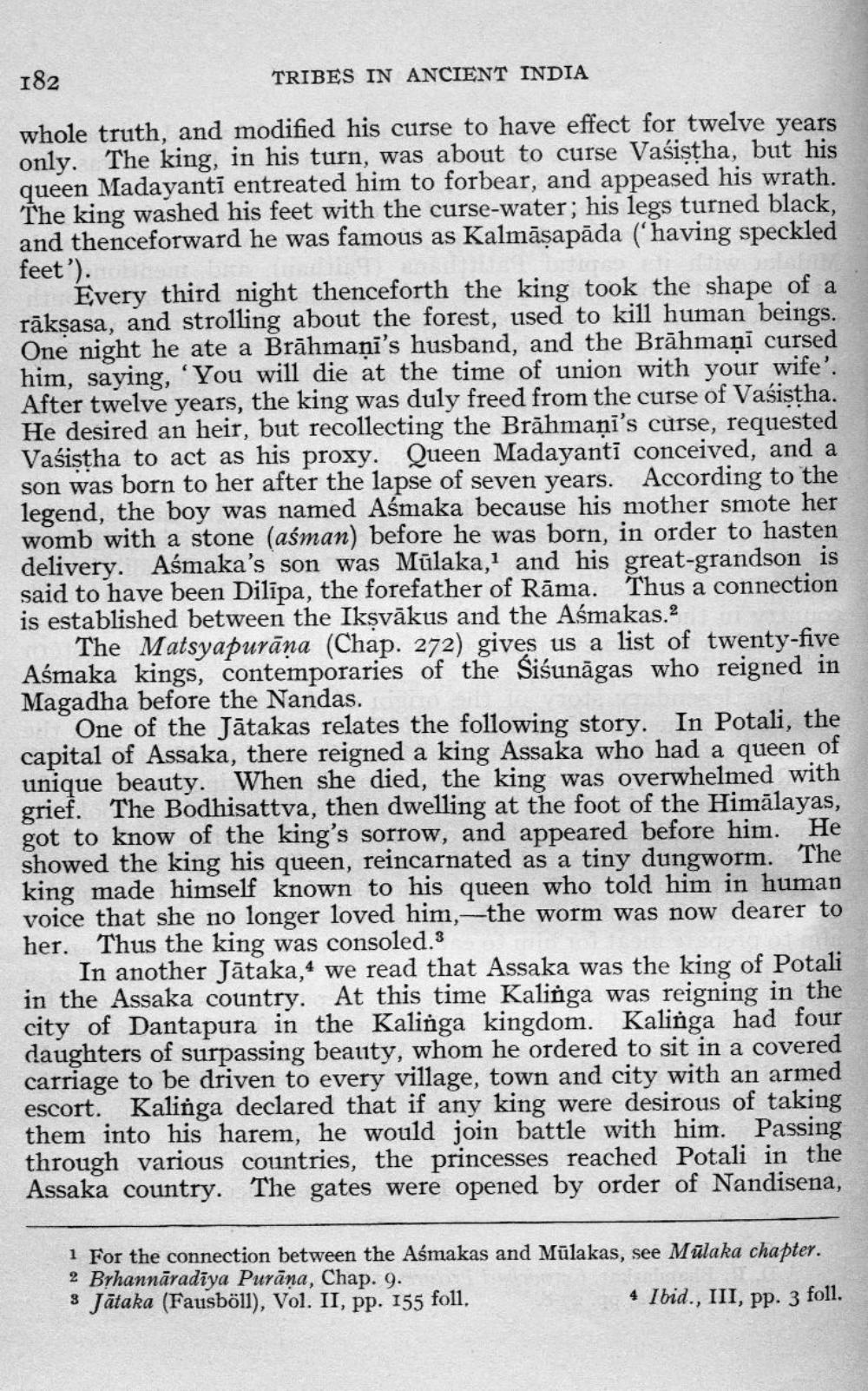________________
182
TRIBES IN ANCIENT INDIA whole truth, and modified his curse to have effect for twelve years only. The king, in his turn, was about to curse Vašistha, but his queen Madayanti entreated him to forbear, and appeased his wrath. The king washed his feet with the curse-water; his legs turned black, and thenceforward he was famous as Kalmāşapāda (having speckled feet').
Every third night thenceforth the king took the shape of a rākşasa, and strolling about the forest, used to kill human beings. One night he ate a Brāhmaṇi's husband, and the Brāhmaṇi cursed him, saying, 'You will die at the time of union with your wife'. After twelve years, the king was duly freed from the curse of Vasistha. He desired an heir, but recollecting the Brāhmaṇi's curse, requested Vasistha to act as his proxy. Queen Madayanti conceived, and a son was born to her after the lapse of seven years. According to the legend, the boy was named Aśmaka because his mother smote her womb with a stone (aśman) before he was born, in order to hasten delivery. Aśmaka's son was Mūlaka,and his great-grandson is said to have been Dilipa, the forefather of Rāma. Thus a connection is established between the Ikşvākus and the Asmakas.2
The Matsyapurāna (Chap. 272) gives us a list of twenty-five Asmaka kings, contemporaries of the Siśunāgas who reigned in Magadha before the Nandas.
One of the Jātakas relates the following story. In Potali, the capital of Assaka, there reigned a king Assaka who had a queen of unique beauty. When she died, the king was overwhelmed with grief. The Bodhisattva, then dwelling at the foot of the Himālayas, got to know of the king's sorrow, and appeared before him. He showed the king his queen, reincarnated as a tiny dungworm. The king made himself known to his queen who told him in human voice that she no longer loved him,--the worm was now dearer to her. Thus the king was consoled. 3
In another Jātaka, 4 we read that Assaka was the king of Potali in the Assaka country. At this time Kalinga was reigning in the city of Dantapura in the Kalinga kingdom. Kalinga had four daughters of surpassing beauty, whom he ordered to sit in a covered carriage to be driven to every village, town and city with an armed escort. Kalinga declared that if any king were desirous of taking them into his harem, he would join battle with him. Passing through various countries, the princesses reached Potali in the Assaka country. The gates were opened by order of Nandisena,
1 For the connection between the Asmakas and Mülakas, see Mülaka chapter. 2 Brhannāradiya Purāna, Chap. 9. * Jataka (Fausböll), Vol. II, pp. I55 foll,
4 Ibid., III, pp. 3 foll.




